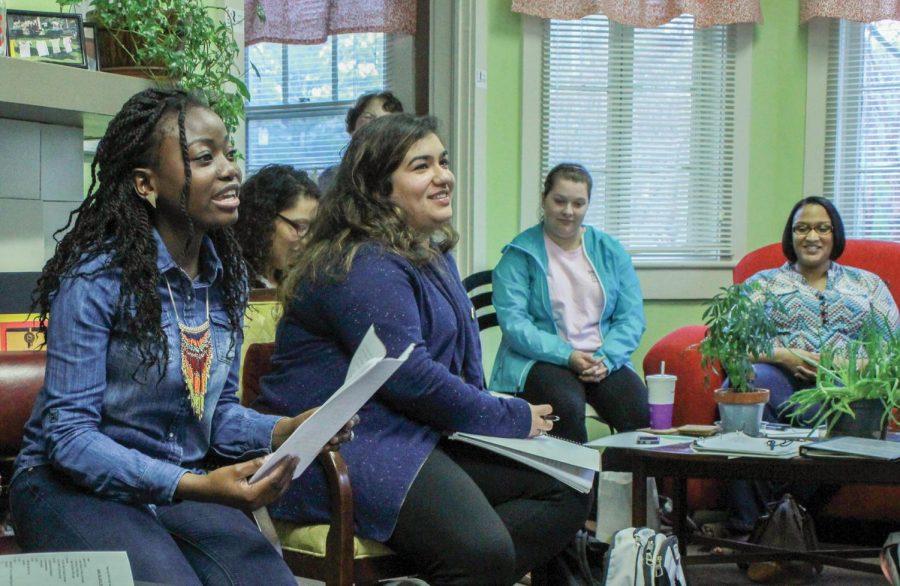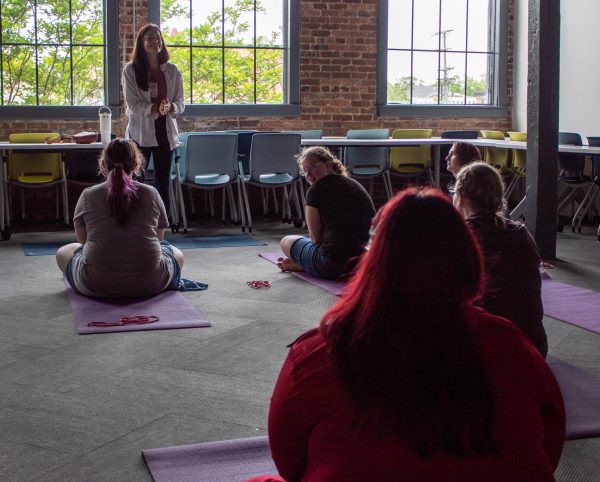UNA international students discuss cultural effects on women
April 16, 2015
Students gathered in the living room of the Women’s Center Monday, April 6 to listen to international students Emily Kazungu from Kenya and Yogyata Batra from India speak about cultural differences for women.
The UNA chapter of the Women’s and Gender Studies Association hosted the free event.
Kazungu, Swahili Critical Languages teacher and future online editor for The Flor-Ala, and Batra, resident advisor and SGA senator, were invited to speak because of their roles as campus leaders.
Both speakers touched on cultural events pertaining to women and how those same actions were perceived on American soil.
“Most women get married very young here (in America),” Kazungu said. “In Kenya, women focus mainly on their career and choose to get married in their late 30s.”
Unlike the rehearsal dinner in America, the Kenyan groom’s family gives a dowry, typically in the form of goods such as cattle, she said.
Love marriages in India are not common like in the U.S., Batra said, but she, too, comes from a family that is open-minded to the topic.
Kazungu said the shift for women’s rights in Kenya is getting better.
“Women are now allowed to drive anywhere they want and to pursue dreams of becoming doctors and engineers,” she said.
Although Kazungu did not know anyone in the Kenyan massacre that killed about 150 college students two weeks ago, it did effect her, she said.
“It scared me — my sister goes to school in Kenya,” she said. “These young people had big dreams and they were cut short. It boke my soul.”
An issue she addressed was freedom of speech, a right many Americans often take for granted. Kanungu’s emphasis was on rights of homosexuality in Kenya.
“In 2012, homosexuals rallied for their rights, although it hasn’t been stated if it’s legal or illegal,” she said. “But we Kenyans are more open-minded as opposed to Uganda where it’s illegal. You can even be killed if you know someone who is gay.”
Batra said an aspect of life Indian women battle daily in their culture is physical appearance.
“If girls are not a certain size, they’re looked down upon — irrelevant to their intelligence,” she said.
India is a country where sex crimes are rapidly increasing without enough emphasis on education, Batra said.
There were 24,923 incidents of rape in 2012, according to the National Crime Records Bureau, but experts agree the number is much higher.
“There is free public education for women, like hotlines and helplines,” she said. “But the education needs to be for men. As much as I love India, I’m not seeing any results from this horrific problem.”
Junior Ruby Villalobos said she attended the events because women’s studies is an important topic to her.
“We always have interesting topics here at the Women’s Center and I can apply them to my daily life,” she said.
Coordinator for Women’s Studies Emily Kelley said she would like to have more people attend events and contribute differing ideas.
“I want people to be able to walk away with a better understanding of themselves and more acceptance of others on campus,” she said.











